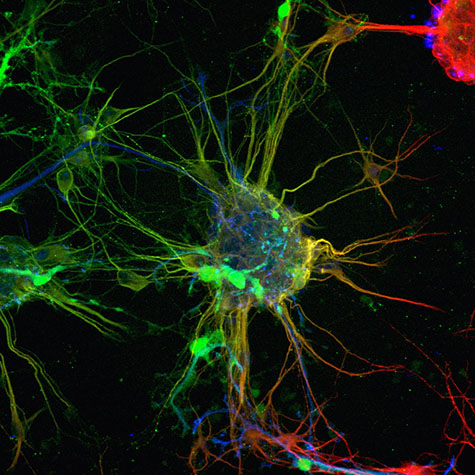
The Gene and Cell Therapy for Neurorestoration Laboratory pursues advanced biological treatments for neurological disorder or injury, including Amyotrophic Lateral Sclerosis (ALS, also known as Lou Gehrig’s disease) and nerve gap repair. We aim to translate proof-of-principle studies to large animal studies that can be implemented into human treatments.
Within the laboratory, genes for neural growth factors and anti-apoptotic intracellular proteins are inserted into the DNA of genetically engineered viruses. These viruses, which have been rendered safe through the removal of their native genes, can be used to transfer therapeutic genes into diseased tissue. A variety of vectors are currently being tested in both neuronal cell cultures and in animal models for motor neuron disease.
The lab also focuses on the development of tissue-specific targeting strategies. These approaches are designed to deliver molecular therapeutics to an anatomically defined site of interest. Much of this effort has concentrated on motor neuron-specific gene delivery. In addition, lab director, Nicholas Boulis, MD, has focused on the development of techniques for safe and accurate injection of therapeutics into the brain and spinal cord.
Research in the laboratory tests basic principles while providing tools for clinical translation. Techniques and assays applied in the lab include:
- Neuronal cell cultures
- Rodent transgenic colonies
- Surgery in rodents
- Locomotor behavior assays in rodents
- Surgery in large animals
- Histology

